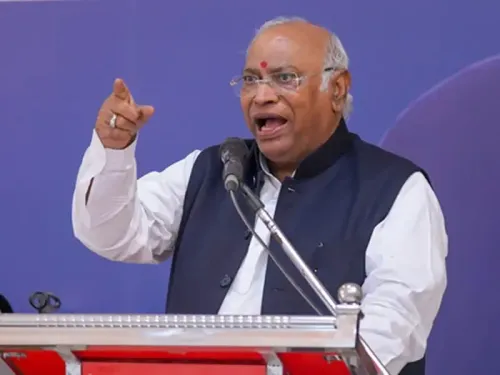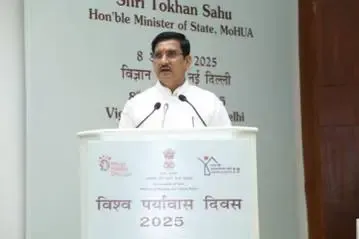How is UP driving sustainable rural development through Panchgavya and biogas?

Synopsis
Key Takeaways
- Collaborative effort to boost rural economy.
- Focus on cow protection and Panchgavya products.
- Introduction of advanced technologies in cow shelters.
- Creation of employment opportunities for villagers.
- Enhancement of environmental sustainability.
Lucknow, Aug 17 (NationPress) In a groundbreaking effort to enhance the rural economy of Uttar Pradesh, the state Gau Seva Commission has collaborated with Patanjali Yogpeeth to advocate for cow protection, promote Panchgavya products, encourage natural farming practices, and expand biogas initiatives throughout the state.
This partnership was formalized after discussions between Commission Chairman Shyam Bihari Gupta and Patanjali Co-Founder Acharya Balkrishna.
This innovative move aligns with Chief Minister Yogi Adityanath’s vision, emphasizing that cows are crucial to the advancement of rural villages.
Patanjali Yogpeeth has committed to providing comprehensive technical support for these initiatives.
As part of this collaboration, cow shelters will evolve from mere conservation centers into thriving rural industries, focusing on producing Panchgavya products and biogas. Baba Ramdev is anticipated to visit Uttar Pradesh soon to meet CM Yogi Adityanath and finalize the operational roadmap.
According to Dr. Anurag Srivastava, the Officer on Special Duty at the Gau Seva Commission, each of the 75 districts will see the development of two to ten cow shelters as model centers. These will include open sheds, fencing, and security measures to ensure cows can roam freely.
This initiative promises to create significant rural employment, with local residents participating in cow urine collection and product sales through a 50 percent commission structure. Patanjali Yogpeeth will facilitate the program with training, quality assurance, formulation, certification, and licensing.
Moreover, cutting-edge technologies such as geo-fencing, cow tagging, photo mapping, and fodder inventory tracking will be implemented in cow shelters. Natural inputs like neem, cow urine, and vermicompost will be distributed to every village, aiding farmers in reducing expenses, enhancing soil fertility, and promoting environmental sustainability.









